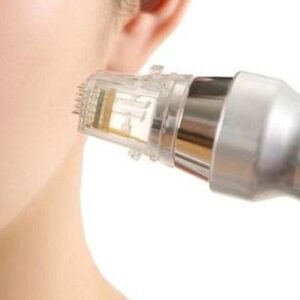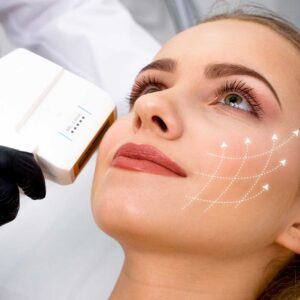Description
Familiarity with Treatment
Flexible laryngoscopy is a diagnostic procedure that allows for the visualization of the pharynx and larynx using a flexible fiberoptic scope. It is commonly performed in a clinic office or medical center and is a valuable tool for evaluating various conditions affecting the throat and larynx.
Procedure
The procedure for flexible laryngoscopy involves the insertion of a small, flexible telescope through the nose and into the throat to visualize the pharynx and larynx. This is typically performed with the patient awake and may involve the use of numbing medicine sprayed in the nose. The procedure is relatively quick, often taking less than 10 minutes.
Who is it Suitable For?
Flexible laryngoscopy is suitable for individuals requiring evaluation of the pharynx and larynx for various conditions, including those experiencing hoarseness, sore throat, or ear pain for an extended period. It is also useful for assessing the airway prior to certain medical procedures.
Who is it Not Suitable For?
Flexible laryngoscopy may not be suitable for individuals with specific medical conditions that contraindicate the procedure or those who are unable to tolerate the insertion of the flexible scope through the nose.
Advantages
- Non-invasive: The procedure is relatively non-invasive and does not typically require general anesthesia.
- Quick and Efficient: Flexible laryngoscopy is a quick procedure, often taking less than 10 minutes, and provides valuable diagnostic information.
Complications
- Discomfort: Some individuals may experience mild discomfort or irritation in the nose and throat during and after the procedure.
- Rare Bleeding: Rarely, individuals may experience minor bleeding in the nose following flexible laryngoscopy.
Preoperative Care
Preoperative care for flexible laryngoscopy may involve specific instructions from the healthcare provider, such as dietary restrictions or adjustments to medication regimens. Imaging tests or other diagnostic studies may also be conducted as part of the preoperative assessment.
Postoperative Care
Postoperative care for flexible laryngoscopy typically involves monitoring for any discomfort or minor bleeding in the nose and throat. Patients may be provided with post-procedure instructions for nasal care and any necessary follow-up appointments.
Flexible laryngoscopy is a valuable diagnostic tool for evaluating conditions affecting the pharynx and larynx.






Reviews
There are no reviews yet.